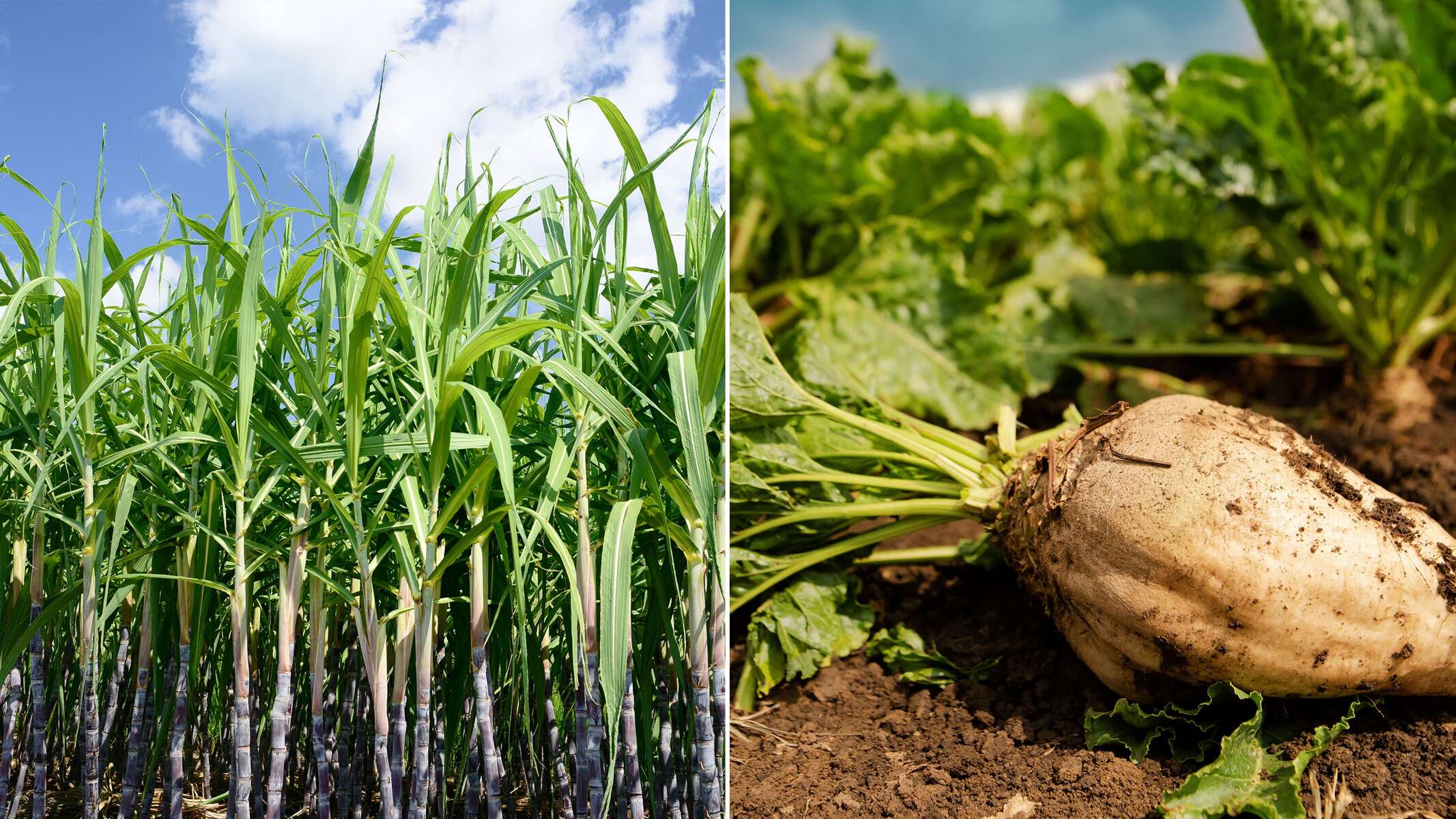The Great Argument: Sugar Beet Vs Sugar Cane - Which Is the Superior Choice for Sweeteners?
The argument over sugar beet versus sugar cane as the preferred sweetener involves several important variables. Each deals distinctive benefits and challenges relating to manufacturing, taste, and wellness implications. While sugar beet may interest those focusing on sustainability, sugar cane has its very own social and cooking significance. As consumers end up being extra conscious of their choices, the question remains: which sweetener really attracts attention in today's market?
The Beginnings of Sugar Beet and Sugar Cane
Sugar cane has been grown for thousands of years, mostly in exotic areas, sugar beet emerged as a significant alternative in cooler climates throughout the 18th century. Sugar cane, indigenous to Southeast Asia, was initial domesticated around 8000 BCE and spread out around the world via profession and expedition. Its high sucrose web content made it a beneficial plant, leading to considerable haciendas in areas like the Caribbean and Brazil.
On the other hand, sugar beet was first cultivated in the Mediterranean around the 18th century, particularly gaining traction in Europe as an action to sugar cane shortages. The plant flourishes in temperate environments, making it ideal for regions with cooler weather condition. The discovery that sugar might be removed from beet roots changed sweetener manufacturing, particularly during the Napoleonic Battles when trade limitations limited cane sugar gain access to. The rise of sugar beet farming noted a zero hour in the history of sweeteners, giving a local source for several countries.
Production Procedures: From Area to Sugar
The production processes of sugar beet and sugar cane disclose significant differences in farming techniques, gathering approaches, and refinement stages. Recognizing these subtleties is necessary for appreciating just how each crop contributes to the overall sugar market. This comparison highlights the special characteristics and challenges connected with both resources of sweet taste.

Farming Methods Contrast
Cultivation strategies for sugar beet and sugar cane reveal unique methods that influence their production processes, from area prep work to last sweetener extraction. Sugar beet cultivation normally entails raking and harrowing to produce a great seedbed, followed by seeding in rows to facilitate growth. This crop take advantage of cooler environments and is often planted in spring. On the other hand, sugar cane is typically planted in furrows with pre-sprouted cane items, calling for a cozy, exotic climate for perfect growth. Cane areas are often set out to handle water efficiently, given its need for considerable watering. Both plants are handled with certain fertilization and insect control methods tailored to their growth environments, affecting yield quality and efficiency in sugar removal.

Harvesting Methods Explained
Effective collecting approaches for sugar beet and sugar cane play a necessary function in ensuring maximum return and top quality of the end product. Sugar beet harvesting typically uses mechanical root harvesters, which successfully root out the beetroots from the soil and different them from the vegetation. This technique reduces damage to the beetroots and decreases labor costs. On the other hand, sugar cane harvesting may make use of either manual work or equipment, depending upon the region and scale of production. Mechanical harvesters reduced the cane at the base and usually remove the fallen leaves, maximizing the procedure for bigger areas. Both methods call for mindful timing to assure the plants are harvested at peak sweet taste, affecting the top quality of the last sugar item.
Improvement Process Differences
While both sugar beet and sugar cane undergo rigorous refinement processes to change their raw kinds right into useful sweeteners, the approaches utilized vary significantly. Sugar beet refinement starts with washing and cutting the beetroots right into thin cossettes, followed by diffusion, where warm water extracts sucrose. The resulting juice is then cleansed, concentrated, and taken shape. On the other hand, sugar cane handling entails squashing the stalks to draw out juice, which is then clarified using lime and warm to remove pollutants. The cane juice is vaporized to form syrup before formation. Ultimately, while both processes intend to generate white sugar, the distinct methods highlight the one-of-a-kind qualities of each resource and their effects for flavor and purity in the end product.
Nutritional Profiles: What remains in Your Sweetener?
The nutritional profiles of sugar beet and sugar cane existing distinctive differences worth taking a look at. This contrast includes aspects such as caloric material, mineral and vitamin existence, and variants in glycemic index. Understanding these elements can supply understandings into how each sweetener may impact total health.
Caloric Material Comparison
Recognizing the calorie content of sugar beet and sugar cane is vital for those conscious of their nutritional choices. Both sweeteners primarily contain sucrose, contributing a similar caloric worth. Commonly, sugar beet contains approximately 387 calories per 100 grams, while sugar cane has about 390 calories per the same amount. The minor difference in caloric web content may not considerably influence most diet regimens; nevertheless, it is impressive for those very closely checking their calorie intake. Additionally, both sugar resources provide power however do not have necessary nutrients, making them primarily resources of vacant calories. People looking for much healthier options may want to take into account these elements when choosing in between sugar beet and sugar cane as their chosen sweetener.
Mineral and Vitamin Content
Calorie content gives just a component of the picture when reviewing sugar beet and sugar cane. Both sources of sugar vary considerably in their mineral and vitamin accounts. Sugar beetroots are try this remarkably abundant in important nutrients, consisting of potassium, magnesium, and iron. They additionally include tiny amounts of vitamins such as B6 and folate, adding to their dietary worth. On the other hand, sugar cane provides a various collection of benefits, including calcium, phosphorus, and traces of B vitamins. While neither option is a considerable source of nutrients compared to whole foods, sugar beets might have a mild edge because of their greater mineral web browse around these guys content. Inevitably, consumers seeking nutritional advantages from sugar need to consider these differences in profiles.
Glycemic Index Distinctions
Glycemic index plays an important function in reviewing how different sweeteners impact blood sugar levels. Sugar beet and sugar cane display remarkable differences in their glycemic reactions. Normally, sugar beet has a reduced glycemic index contrasted to sugar cane, causing a slower and steadier surge in blood glucose levels after consumption. This attribute might make sugar beet a preferable option for people taking care of diabetes or those seeking to preserve secure energy levels. On the other hand, sugar cane has a tendency to cause a much more fast spike in blood glucose, which might cause quicker power collisions. Recognizing these distinctions is substantial for customers intending to make enlightened nutritional selections relating to sugar and their effect on total wellness.
Environmental Impact: Sustainability Considerations
While both sugar beet and sugar cane are necessary resources of sugar, their environmental impacts and sustainability considerations differ noticeably. Sugar beetroots, mostly expanded in warm regions, typically call for less water and can be cultivated in varied climates. They likewise gain from plant rotation techniques, which improve soil health and minimize the demand for synthetic plant foods. However, intensive farming of sugar beets can result in soil depletion and pesticide usage.
In comparison, sugar cane prospers in tropical climates and commonly necessitates considerable water resources for watering (Sugar beet vs sugar cane). The monoculture nature of sugar cane farming can worsen dirt erosion and biodiversity loss. Additionally, the burning of cane fields before harvest launches carbon discharges and adds to air pollution. Both plants encounter challenges relevant to environment change, however their varying farming techniques exceptionally affect their overall sustainability accounts. As a result, the option between sugar beet and sugar cane involves considering these environmental look at this now influences very carefully
Preference and Culinary Uses: Which Sweetener Reigns Supreme?
The option between sugar beet and sugar cane expands beyond ecological factors to consider to include taste and cooking applications. Sugar beet, usually perceived as having a slightly various flavor profile, has a tendency to be much less pleasant than sugar cane. This refined distinction can influence its use in recipes, especially in baked items where a neutral sweet taste is desired.
On the other hand, sugar cane is celebrated for its unique, rich, and a lot more intricate taste, making it a recommended selection for drinks and treats - Sugar beet vs sugar cane. Its all-natural molasses web content can boost the deepness of tastes in numerous recipes
In food preparation, sugar cane's versatility shines through in marinades, glazes, and confections, while sugar beet is typically found in processed foods and sweeteners like granulated sugar. Ultimately, the decision in between both sugar usually hinges on specific preference choices and details cooking applications, with each offering one-of-a-kind advantages in the cooking area.
Wellness Effects: Sugar Beet Vs Sugar Cane
Both sugar beet and sugar cane have unique health and wellness ramifications that can influence consumer options. Sugar beet vs sugar cane. Sugar beet is typically concerned for its higher fiber web content, which can assist digestion health and wellness. Furthermore, it contains particular anti-oxidants that may add to total health. On the other hand, sugar cane is rich in nutrients such as calcium, potassium, and magnesium, offering some mineral advantages
Nonetheless, both resources mainly consist of sucrose, which can bring about comparable health and wellness issues when eaten exceedingly, such as weight problems, diabetes, and cardiovascular disease. The handling techniques likewise differ; sugar beet is normally fine-tuned a lot more intensively, potentially leading to a loss of certain nutrients. Customers worried regarding ingredients may like sugar cane, as it typically undergoes less handling. Ultimately, comprehending these health ramifications can lead individuals towards making educated decisions concerning their sugar choices.
Consumer Preferences: Fads and Insights
Customer choices for sugar have progressed considerably over the last few years, affected by health patterns, ecological concerns, and dietary selections. Enhanced understanding of the adverse health effects related to too much sugar consumption has led lots of customers to seek alternatives. This shift has actually motivated a growing interest in all-natural sweeteners, with sugar beet and sugar cane being at the leading edge of conversations.
Research study shows that consumers are increasingly favoring sugar beet because of its viewed ecological advantages, as it is frequently expanded closer to processing plants, reducing transportation discharges. On the other hand, sugar cane is frequently connected with tropical regions and might lug assumptions of sustainability challenges.

Often Asked Concerns
Just How Do Sugar Beet and Sugar Cane Affect Blood Sugar Level Degrees?
Sugar beet and sugar cane both consist of sucrose, which can elevate blood glucose degrees. The impact greatly depends on individual metabolic process and intake amounts, however both sources add similarly to blood sugar actions for the most part.
Which Sugar Is Better for Baking and Cooking?
When reviewing sugar for baking and cooking, one must take into consideration appearance, flavor, and dampness retention. Sugar beet and sugar cane both use special top qualities, with sugar cane commonly favored for its richer taste profile in cooking applications.
Can Sugar Beet or Cane Be Used in Vegan Diets?
Both sugar beet and sugar cane can be used in vegan diet regimens. They are plant-derived sugar, making them ideal for individuals seeking vegan-friendly options without pet items, making certain moral options in their cooking methods.
What Are the Historical Uses Sugar Beet and Cane?
Historically, sugar beet and cane acted as essential sources of sweetness, with cane grown in tropical regions and beet in warm zones. Both have actually been important to different societies, economies, and cooking customs throughout background.
Exist Any Kind Of Alternatives to Sugar Beet and Cane?
Alternatives to sugar beet and cane include agave nectar, honey, syrup, and artificial sweeteners like aspartame and sucralose. These alternatives offer varying tastes and health advantages, interesting diverse dietary choices and constraints.